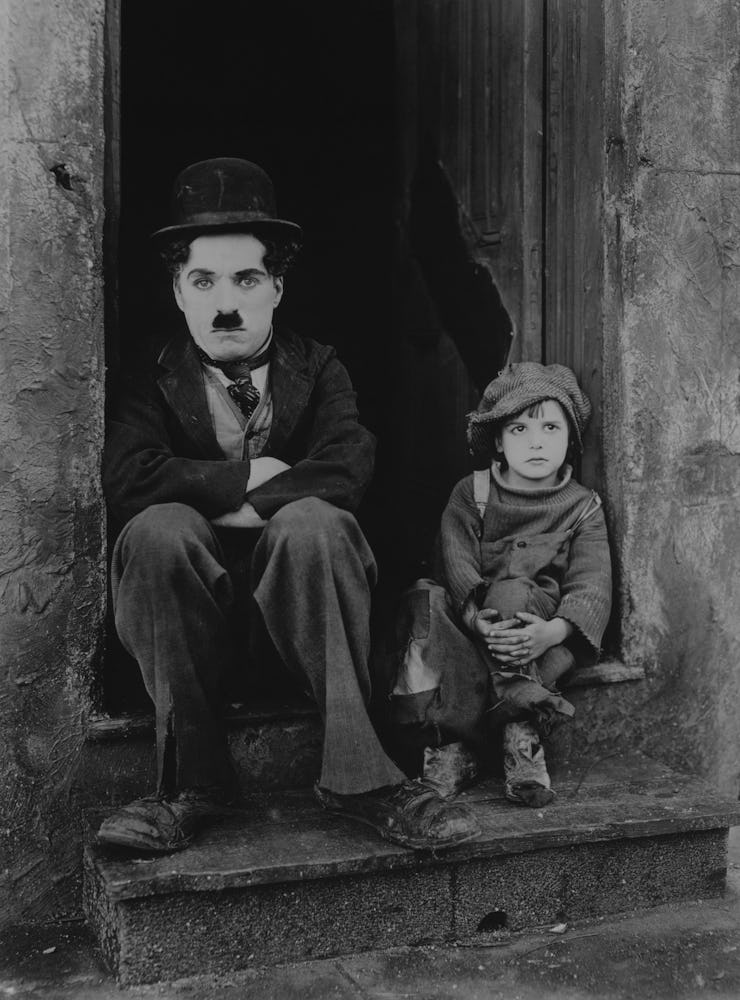Why Ignore the Virtual Backlash? Because Charlie Chaplin Thought Film Was a Fad
When critics and creatives complain about a medium, they're often really complaining about content.

“Cinema is little more than a passing fad. It’s canned drama. What audiences really want to see is flesh and blood on the stage.” - Charlie Chaplin, 1916
History is rife with instances of notable people shooting down transformative technologies. Charlie Chaplin wasn’t alone in predicting that motion pictures were a fad and, a few decades later, plenty of people said the same thing of television (and the iPod a few decades after that). Now, the pre-backlash is hitting the nascent VR industry. This stuff is predictable.
That doesn’t mean it isn’t interesting or relevant. More often than not an indictment of a medium turns out to actually be an indictment of the messages it hosts.
Chaplin’s remark about “flesh and blood on the stage” tells us a whole lot about storytelling in early cinema. For centuries, storytelling existed as a deeply corporeal act. It was flesh and blood, displayed in glorious physicality in front of an audience. It was real and tangible and powerful and, on the surface, early film doesn’t measure up. It’s flat, it’s impersonal, it’s silly and simple. If you compare great stage plays like Hamlet and Romeo and Juliet to The Black Imp, of course cinema was going to seem like nothing more than a passing fancy — a curiosity ultimately doomed to fail because it lacked narrative impact.
In 1916, films were only two decades removed from being glorified GIFs made by hand. Cinema remained pretty basic and, at its best, presented a sort of shadow of theater. Filmmakers like Méliès literally framed a stage and didn’t move the camera. Though his films were groundbreaking and popular, they rapidly became too simplistic for a public bent on witnessing spectacle.
Things advanced pretty quickly, though — major studios like Universal, Paramount, and Fox all became a part of the moving picture landscape between 1910 and 1927, and that pivotal year brought a major development to film in the form of “talkies.”
What Chaplin didn’t account for was the fact that filmmakers very quickly began to figure out how to use the fact that the audience wasn’t in the room. Only when filmmakers began using complex camera work, cuts, fade, jump cats, and montages did film become a theatrical medium rather than a simple means of narrative delivery. Suddenly, act structures got complicated and writers started taking experimental departures from traditional storytelling. It’s obvious from looking at any script that’s centered around a three or four or five act structure that film exists in the way it does because of plays, but it was short-sighted of Chaplin to think that cinema did not have the ability to reinvent the conventions of theater.
The shortsightedness of Chaplin, who would go on to become one of history’s greatest filmmakers, is worth revisiting in light of — or by the light of — the Oculus Rift. Plenty of commentators have complained that VR, while useful, won’t give storytellers revolutionary new tools. And maybe that’s true … for now. But is that a complaint about VR or is that actually veiled disappointment in the early attempts at VR storytelling?
In a keynote at FMX last week, Andrew Cochrane, Digital and New Media Director of Mirada Studios, talked about “Creating Narratives for Virtual Reality.” He spoke of immersive cinema and impossible perspective, of inclusion and character, of focus and attention. In short, things are going to change. Where directors and storytellers once controlled what the audience saw, audiences will soon be able to look wherever the hell they want, and it’ll be up to those creating narratives to capture a viewer’s attention and build experiences around them. Cochrane equated where we are now to those early days of cinema, with Méliès camera plays and simple films, but emphasized that where we’re headed is different than where we’ve been.
Ultimately, Chaplin was profoundly wrong about the role of cinema in culture and society. Maybe if filmmakers had been less willing to buck narrative conventions and innovate around the opportunities provided by playing to a camera instead of a pair of eyes, theater and IRL storytelling would’ve prevailed. Maybe if audiences hadn’t been so impressed and filmmakers so invested in the new medium, we would’ve gone back to the stage for all of humanity’s most important and impactful stories. Maybe in an alternate future.